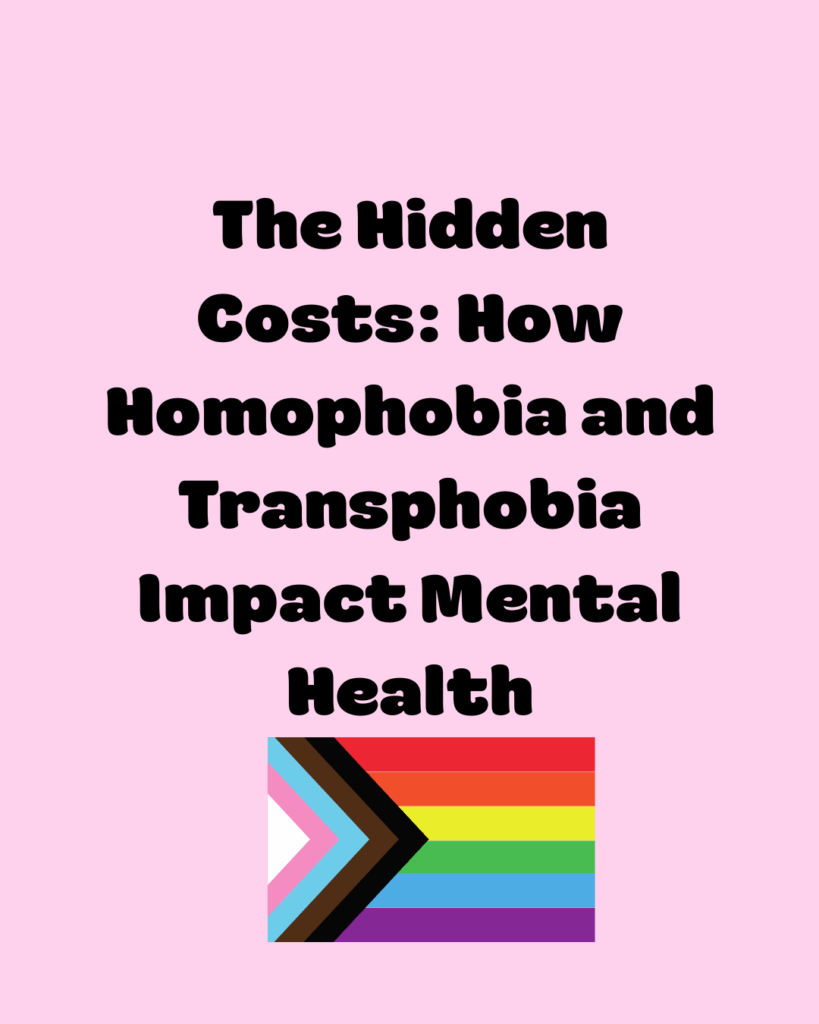In June, Pride colours are worn and celebrations ensue as we commemorate the culture and identity of the LGBTQ+ community. But underneath the jubilation, many emotions weigh heavily. Contending with homophobia and transphobia is a constant. It’s also a reminder that living in a world where acceptance is conditional can be detrimental to one’s health if the right support isn’t in place. Without it, one’s mental health is thrust into the forefront. From healthcare to family bonds, support is needed—whether it’s from our foundation or our ancestral connections. Either way, finding solace and compassion is a must.
Mental Health Struggles Are More Common
LGBTQ+ individuals face high rates of mental health issues. The difficulties are also more severe and have negative consequences on a person’s mental health. Anxiety, depression, PTSD (post-traumatic stress disorder), suicidal attempts, and ideation are just a few of the many impacts that can occur and affect a queer person’s mental health. Reasons for this can include, but are not limited to:
- Family and upbringing: Discrimination and bullying can, unfortunately, come from family members, too. Some LGBTQ+ persons have to deal with familial attitudes that don’t mesh with theirs. Prejudicial perspectives could be introduced from childhood, creating a judgmental space for a queer person. One’s moral compass can also be imposed, sometimes without knowledge. Homophobic views and perceptions cause stressful environments for queer persons, affecting their emotional being. Family rejection is painful but not uncommon. While it may reflect in behaviours, it can also reveal itself in actions taken, like being kicked out of the house or cut off financially. These actions can lead to isolation and deep feelings of despair.
2. Media and representation: Presently, the path to inclusion is at a crossroads. Even though inclusion is the buzzword as of late, the LGBTQ+ community continues to be misrepresented. Representation of queer people in media and via laws regulated by the government are a fine line between incorporation and tolerance. The ongoing push and pull between some governments to create a safer world for its queer inhabitants is exhausting to watch unfold. Societal support is needed for LGBTQ+ persons to thrive and feel unthreatened. Only once stigmas and prejudices are seen through a corrective lens, will mental health struggles cease from impacting queer people negatively.
3. Societal and cultural influences: Constant rejection and lack of acceptance can lead to emotional distress and isolation. These feelings can manifest into sentiments of a lack of self-worth or approval. Being seen as less than or excluded because of negative attitudes and discriminatory practices in health care, employment, or housing can be damaging to one’s mental health. And because of cultural norms, stereotypes and beliefs, systemic discrimination can play a large part in it, too. A sense of belonging and support is needed to lay a steady foundation from which to build.
Remember, we are our ancestors’ wildest dreams
Sometimes, when we can’t find the words or support from our present surroundings, we turn to our ancestors for insight. Looking back on their words and experiences can give us an understanding of how they moved in their space at the time. Remembering queer and trans ancestors’ histories and stories can also provide some discernment. It serves as a reminder of where you came from and potentially where you’re going.
By finding joy and pride in our ancestors from the LGBTQ+ community, we see the strength and perseverance in their resilience and struggle. Prominent writer and LGBTQ+ activist Audre Lorde shared her life experiences as a Black lesbian via her writings. Writer James Baldwin unabashedly spent his career educating others about Black and queer identity. Through the years, many of our queer ancestors have committed to educating and showing us the way. The histories are memories and teachings left as guidelines and advice, when needed. The common denominator in their vision is that without change and challenge, there will be no space to overcome.
Support systems are key
James Baldwin said, “Not everything that is faced can be changed, but nothing can be changed until it is faced.” There is hope in healing. Positive reinforcement and advancement can change the course. Affirming environments, supportive family members, and LGBTQ+-friendly spaces can all lead to a reduction in stress and an increase in resilience. From using someone’s correct pronouns to being a genuine supporter of change—every step counts in combating struggles with homophobia and transphobia in mental health.
If you or a friend is struggling with your mental health, reach out to Ancestral Memory Therapy for assistance. We are an LGBTQ+ friendly environment committed to serving our community.
Ancestral Memory Therapy Offers virtual therapy across Ontario
In person session available: Toronto and Hamilton

